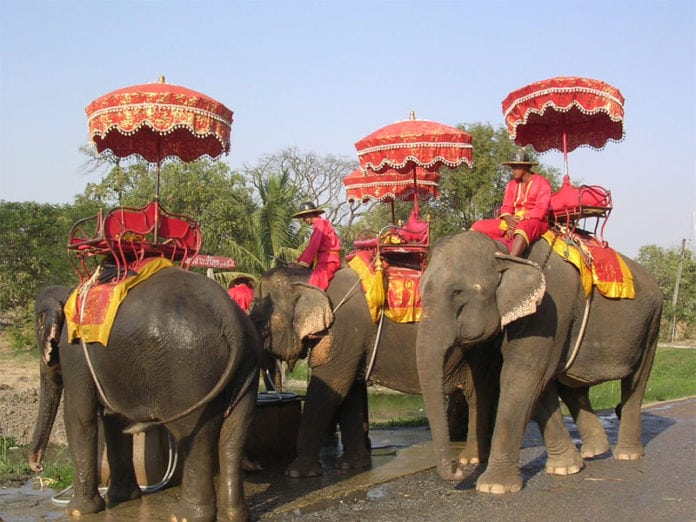As the coronavirus outbreak continues to sweep across the globe, the slowdown in life has brought some form of relief for dozens of elephants in northern #Thailand.
At the Maesa Elephant Camp in Chiang Mai, tourism has been decimated by the outbreak of Covid-19, which has forced such businesses to close their doors to all visitors.
With no end to the pandemic in sight, owners have now decided to remove the huge wooden and metal seats that are strapped to the Jumbos’ backs throughout the day.
The camp has also announced that it has no intention of making its 78 elephants wear the heavy carriages once the business is reopened.
Instead, the animals will be allowed to roam freely in the camp grounds, where visitors can observe them in their natural habitat.
This will be the first time in 44 years that the elephants have not worn the seats during the daytime, according to camp director Anchalee Kalampichit.
“Since we entered the business in 1976, riding on the elephants has always been the favourite activity of tourists,” she said.
“But because the coronavirus has spread there have been fewer tourists and eventually the government ordered us to close so we have removed the chairs to liberate the elephants.
“We are not planning to put the seat supports back on the elephants, even if we can operate again. We want to change the style of the place and find more natural ways that the public can enjoy the elephants.
“We will welcome tourists to enjoy learning about the elephants’ ways of life naturally instead of using them to entertain the tourists.”
With all business suspended for now and no income from tourists, the camp owners are set to bear the monthly expense of caring for the elephants while continuing to pay their 300 staff members. The cost, Ms Kalampichit said, amounts to five million baht (£140,000).
“But we will not leave anyone behind and will try to take the best care of the elephants for as long as we can,” she added. “Now we are planting vegetables for the staff to eat as one of the ways we can reduce the expenses.”
A sudden drop in foreign tourists is forcing the closure of dozens of elephant parks across Thailand. Chiang Mai alone has 93 camps.
Unless the government offers financial support in helping such parks to feed and care for their elephant, many could be forced back onto the streets or into illegal logging operations, according to Theerapat Trungprakan, president of the Thai Elephant Alliance Association.
“We don’t want that loop of survival alternatives to come back,” he told the New York Times. “It will endanger the welfare of the elephants, such as having the elephants roaming the streets begging for bananas or sugar cane.”
–
Stay up to date with BangkokJack on Twitter, Instagram, & Reddit. Or join the free mailing list (top right)
Please help us continue to bring the REAL NEWS – PayPal




































